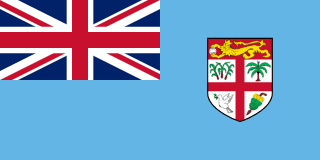About Melanesia
Melanesia (UK: , US: ) is a subregion of Oceania in the southwestern Pacific Ocean. It extends from New Guinea in the west to the Fiji Islands in the east, and includes the Arafura Sea.
The region includes the four independent countries of Fiji, Vanuatu, Solomon Islands, and Papua New Guinea. It also includes the Indonesian part of New Guinea, the French oversea collectivity of New Caledonia, and the Torres Strait Islands. Almost all of the region is in the Southern Hemisphere; only a few small islands that are not politically considered part of Oceania—specifically the northwestern islands of Western New Guinea—lie in the Northern Hemisphere.
The name Melanesia (in French, Mélanésie) was first used in 1832 by French navigator Jules Dumont d'Urville: he coined the terms Melanesia and Micronesia to go alongside the pre-existing Polynesia to designate what he viewed as the three main ethnic and geographical regions forming the Pacific.
The indigenous people who inhabit the islands of Melanesia are called Melanesians. This is a heterogenous set of different genetic groups and ethnicities, different cultural practices (mythology, music, art, etc.), and different unrelated language families. Yet together they form a vast area with a long history of exchanges.




